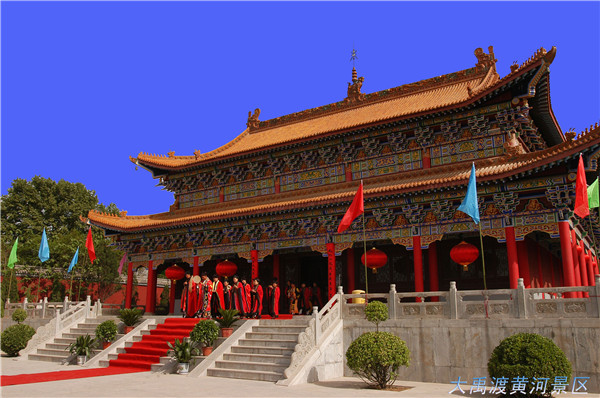
Water is the source of life. But in ancient times, it was more of a source of harm and disaster. As such, people often associated it with beasts, as the saying goes, “fierce floods and savage beasts”, to describe the disaster and catastrophic outcomes. According to Shizi, a famous Chinese literature creature, rivers ran rampantly in the era when Suirenshi who was a legendary ruler said to be the first to discover fire governed. At that time, the Chinese ancestors, in the face of torrential floods, could do nothing but to escape or die.
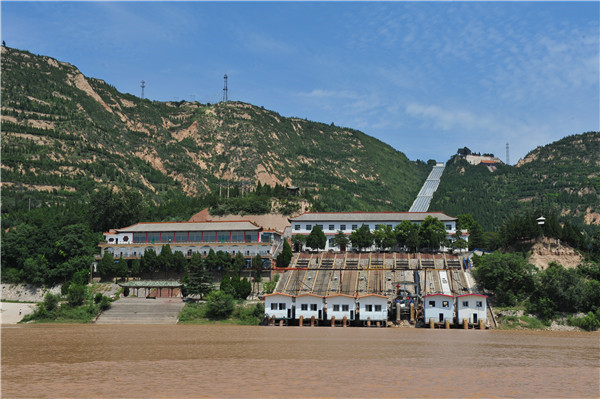
It was the Chinese ancestors living in the eastern part of the ancient river who were the first to rise to water disaster. Three greatest contributors in the history of China were from Yuncheng. The first generation is Nüwa, the second Dayü, and the third Li Bing. Nüwa was the first person who managed on water control in China. According to an article in Huainanzi, in ancient times, since the four pillars of optimum heaven collapsed, the land under heaven cracked. The sky could not cover the earth, meanwhile, the earth could not bear all things. The horrifying scenes sprawled the land: the fire raged, floods ravaged, beasts devoured people, and voracious birds attacked the old and weak. Nüwa melted the five-colored stones to repair the heavens, chopped down legs of giant turtles as the pillars of heaven, accumulated ash to stop the floods and kill the black dragon to ensure the peace in Jizhou. She relieved people from havoc, making them living in caves away from rain and flood. Dayü lived up to the reputation of the greatest contributor to water control. In Mencius, it is written: "When Yao was the ruler, the country faced challenges. Floods ravaged over the land."Gun, father of Yü, was assigned by Yao to regulate the water in Ruicheng County in Yuncheng. He applied the way of banking the river from flooding for nine years, however, setting the stage for further problems. In the end, he was sentenced to the death penalty for his default. Young Dayü was deeply hurt and made up his mind to finish the unsolved problem left by his father and bring the water to permanent control. On the third day of his marriage, Yu left home to manage the water. He reflected and learned from his father's failure. Against the situation that water was everywhere in the land, he abided a natural course and guided the regulation in light of the current circumstances to change the way of banking into the dredge.
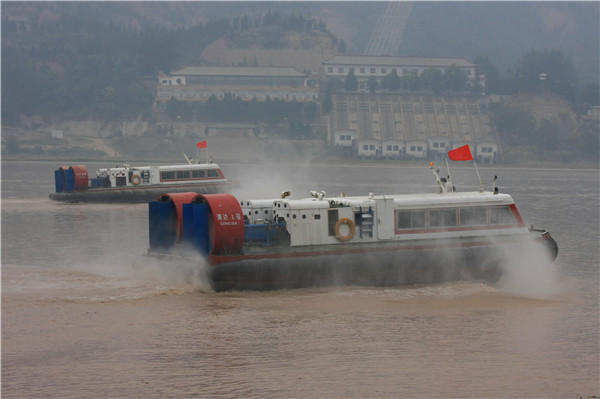
Dayü first cleared the Longmen river course which located in today's Hejin, Yuncheng to release the flood. Since then, Longmen was also known as Yumen. Then he led the people to cut into mountains and build river courses to divert the torrential floods into the river and sea, calming the floods and relieving people from disasters. In the process of water control, Da Yu left behind countless relics, such as the Kaisan Men, Wangfu Tai, Cuokai River, Mitang ditch, Yü city, Da Yü temple, Dayü Du, Grave of Dayü as well as numerous beautiful stories. In particular, the story that he lived outside and did not go home even passed by for thirteen years when he managed the water passed from mouth to mouth with approbation. To remember Dayü's dedication and express admiration, later generations ranked him together with Yao and Shun as the ancient "Three Saint Kings".
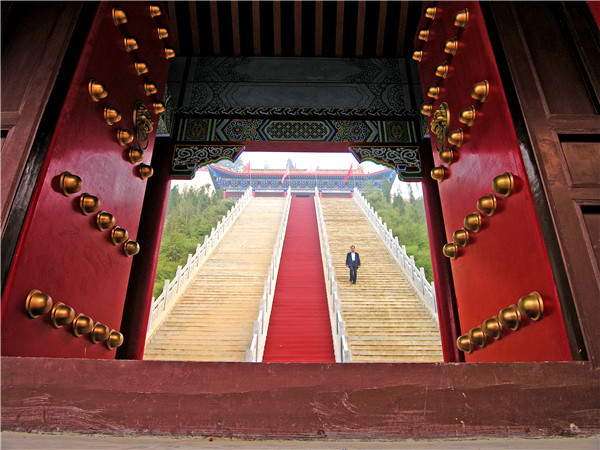
Nüwa and Dayü, with their intelligence, wisdom, bravery, and perseverance, have influenced and inspired generations of people from Shanxi Province dedicated to water control. In 256 BC, when Ying Ji was the emperor of the Qin dynasty, then prefecture chief of Shu County Li Bing(born in Xie village, Xiezhou county, Yuncheng) and his son led people to build mega-project of water conservancy, Dujiangyan. With their achievements, plain in west Sichuan, once deeply bothered by floods, has converted into a fertile land where people could control the water and live in decency. Since then, Sichuan was cherished as a heavenly land of plenty. During 605-617 AD, named as Daye in Sui Dynasty, Yao Xiam was appointed as the local water conservancy supervisor, he widened and lengthened the Yongfeng Canal, which stretched 60km from Weijiawa in Xiaxian County in the east to Wuxing Lake in Yongji City in the west. After the Canal being renovated and dredged, the flood was controlled, and the salt lake was protected, ensuring the river transportation. As such, the Salt Lake obtained 10,000 hu of salt to contribute to the government. In order to commemorate Yao Xian’s achievements, Yongfeng Canal was renamed as Yao Xiam canal. Up to now, Yao Xiam Canal has been used as a water conservancy project to prevent and control floods.
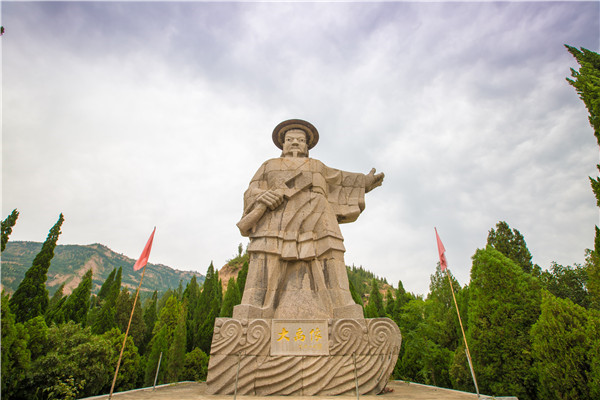
The legends of predecessors controlling water were partially documented in the form of stone carving. Dated back to early years of Eastern Han Dynasty, a stone inscription of water control course in Shanxi province, lasting almost 2000 years till the establishment of People' Republic of China, directly reflected the influence of water resources development and utilization over Shanxi Province in society shifts and vividly showed people how the endeavor developed.
Many Chinese sayings use the nature of water to explain how to behave as a person or a ruler, which reflected the influence on people brought by water conservancy and floods. Human civilization achieved its development during the process of pursuing advantages while alleviating disasters.

